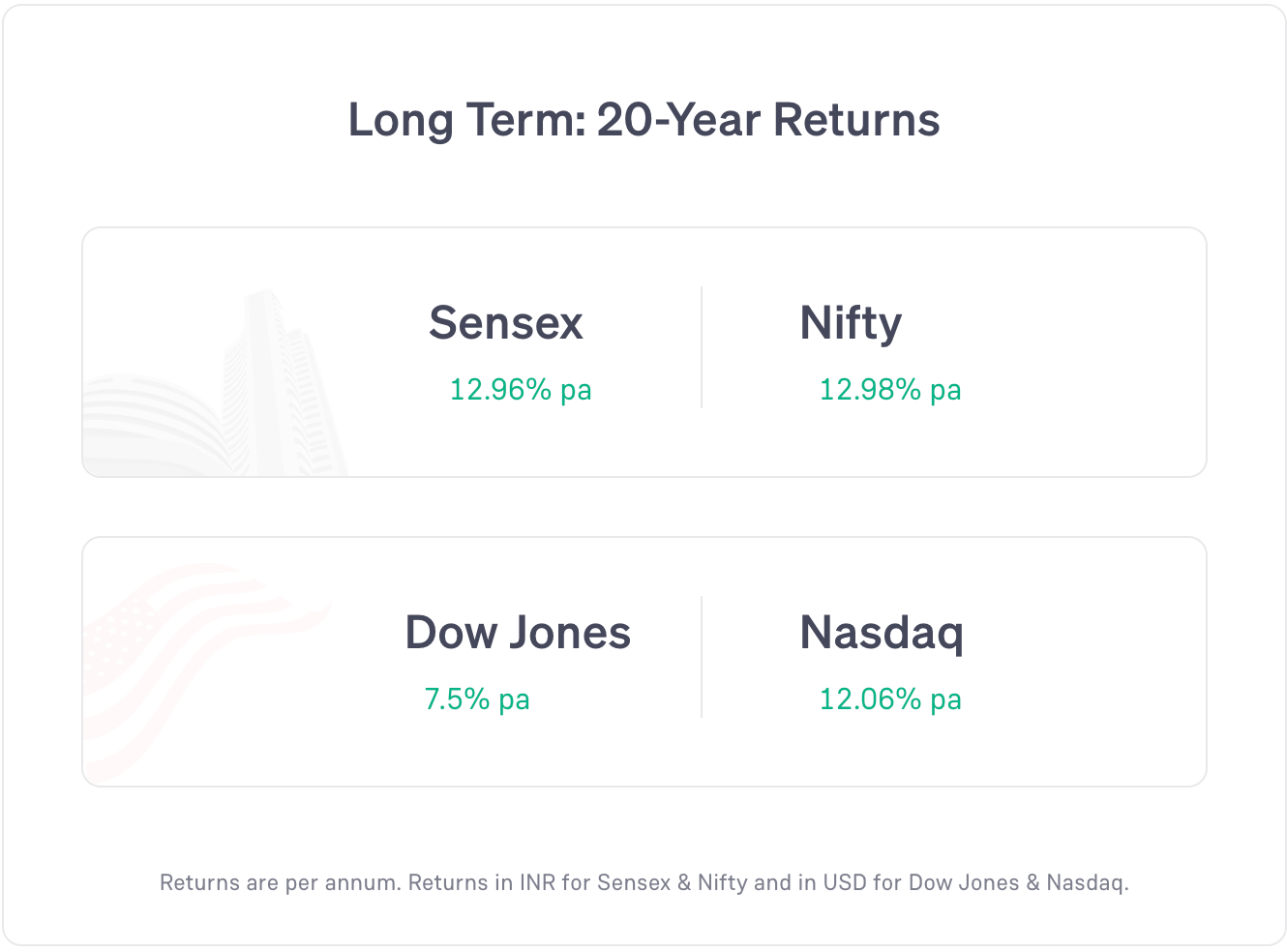NSE launches electricity futures, Jane Street deposits Rs 4,843 cr with SEBI, & more
Monday, 14 July 2025
Markets opened below Friday’s closing point.
Realty stocks and media stocks rose the most today. FMCG stocks and private bank stocks fell the most.
Global markets: US and most European markets fell. Asian markets showed a mixed trend.
News
India’s annual retail inflation rate fell to 2.10% in June (vs 2.82% in May). Wholesale inflation fell to -0.13% (vs 0.39% in May). Negative inflation means items actually got cheaper.
NSE has launched its monthly electricity futures today. It recorded more than 4,000 lots of contracts as of 2 pm.
Jane Street deposited Rs 4,843 crore in compliance with SEBI to resume trading in India.
Smartworks Coworking IPO was subscribed 13.45 times. Retail subscription: 3.53 times. IPO closed for subscription.
Anthem Biosciences IPO has been subscribed 0.73 times. Retail subscription: 0.58 times. IPO closes on 16 July.
Stocks Updates
HCL Tech: net profit fell 9.7% year-on-year to Rs 3,843 crore in the April-June quarter. Dividend announced: Rs 12 per share. Record date: 18 July.
Lupin: board fixed 24 July as the record date for the Rs 12 per share final dividend announced for the FY 2024-25.
Adani Green: raised around Rs 1,209 crore by issuing equity shares to Ardour Investment (promoter group) via share warrants conversion. It increased promoter stake from 61.91% to 62.17%.
Tata Steel: began construction of a Rs 13,000 crore low-carbon electric arc furnace at Port Talbot, UK. The project is supported by an investment of Rs 5,200 crore from the UK government.
DLF: board fixed 28 July as the record date for the Rs 6 per share final dividend announced for the FY 2024-25.
RVNL: received a Rs 212.33 crore order from South Central Railway for upgradation work in the Vijayawada division.
Word of the Day
Overdraft Limit
It is the maximum money a customer can withdraw beyond the actual account balance
It allows a customer to access money from their account, even if there is a zero balance.
The bank approves a set limit for this. That limit is called overdraft limit.
Example: If the account has Rs 5,000 and the overdraft limit is Rs 1 lakh. The customer can withdraw up to Rs 1,05,000.
Interest is charged only on the overdrawn amount based on the number of days it is used.
An overdraft facility is often used by businesses to have a smoother cash flow.
6 Day Course
Theme: understanding MF returns
Day 1: Monday
Many investors make big mistakes while investing in mutual funds.
Often they are simply chasing the mutual funds with the highest returns — which is a bad strategy.
This week, we will try to understand mutual fund returns, their patterns, and best practices.
Let’s start with this: you will not be able to invest in the “best” mutual fund all the time.
In any category and subcategory of mutual funds, the one with the highest returns is almost never constant.
Think of it like students in a class room. In many good classrooms, the student who comes first is never fixed. It might change every semester.
Likewise, good mutual funds keep on changing from the first-position.
It is not practical to invest only in these mutual funds.
As long as you are able to invest in the top few mutual funds, it is okay.
Featured Question
Q. “What is total number of Shares, authorized Shares,paid up Shares?”
Authorised shares: this is the maximum number of shares a company is legally allowed to have.
It may or may not create as many shares as the authorised shares.
If at some point the company wants to increase the number of authorised shares, they must seek shareholder approval.
Issued shares: these are the shares that have been created.
Example: A company may have authorised shares of 1,000 shares but it has so far issued only 800 shares.
Outstanding shares: these are the shares that are available to trade on the share markets.
Outstanding shares can be less than or equal to the authorised shares, but can’t be more than that.
What is the difference between issued shares and outstanding shares?
‘Outstanding shares’ does not include shares that the company has bought back. ‘Issued shares’ includes those shares also.
Paid-up shares: these are shares which the company has sold and received money for.
In some cases, a company may sell shares and get a payment later. Those shares are not counted as ‘paid-up shares’.
Total number of shares: this is a rough statement and its meaning depends on the usage.
Usually, total number of shares means outstanding shares. But investors tend to use it interchangeably.
Did you like this edition?
Leave a feedback here!






